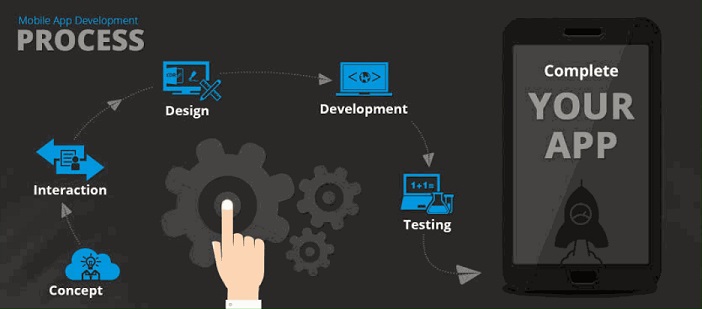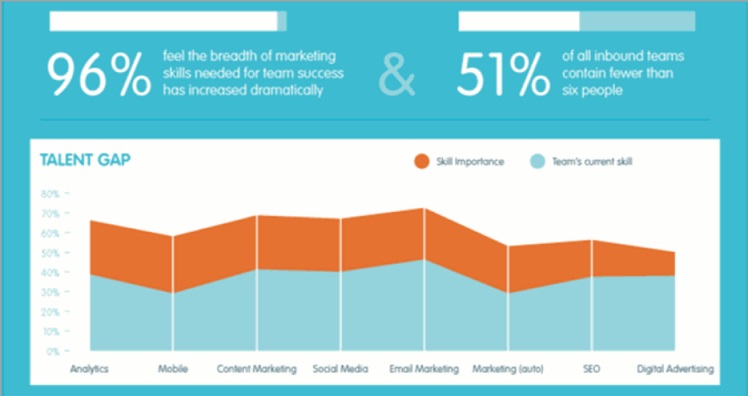

Businesses around the world are not wasting any time in leveraging the genius employed in the manufacturing of today’s smartphones. Having a computer website that showcases the operations of the business is great but it isn’t enough. Companies and organizations need deeper ways to display their services and operations to customers. What better way to do this than to present themselves to the phones of their clients?
And so your organization has come upon the conclusion to develop a mobile application. Which leads us to the big question-To develop your mobile apps or to outsource?

Some business owners prefer to hand over the task to outside professionals working in the field. Others prefer to keep it in the business. The larger lot, however, is torn between the two options and ponders over the advantage that comes with picking one over the other.
An important point to remember is that businesses have different specifications which mean a difference in the development procedure for the apps. It does one good to bear in mind these considerations more so in deciding whether to build mobile apps within the organization or to hire outside talent.
Crucial Points to Consider for Mobile App Development
Cloud computing- A necessity that gives room for flexibility with IT for the app in the event that the business needs to change a certain aspect of its functionality. In other words, cloud computing cuts down on costs for the advancement of the app needed to sustain the growing business.
The creation of reliable and reusable systems also largely depends on the type of talent you hire for the job. One advantage of in house mobile app development is the option it leaves for reusing pieces of code for future projects.
Built-in security features- You’d best be thorough with the security measures you employ in the development of your app, especially with the recent increase in cyber-attacks on Androids and other OS.
Multi-level authentication- Passwords no longer hold the last line of defense against malicious activities. Upon inputting the login details, the app sends a code to the user’s number upon which he/she enters the code and is permitted to access the app. Does your preferred developer have what it takes to include a solid multi-level authentication for your app?
Mobile app performance- Some of the ways that developers recommend to boost performance for the apps include using compressing and cache images, fast loading of data, and creating offline modes.

A business that develops its own mobile applications knows best what to include to enhance the apps’ operations. While this is true, we can confidently argue that a development agency has experience in building applications and is insightful on what determines the success of an app.
That being said, the decision of in house building vs outsourcing is one that can only be arrived at with an in-depth evaluation of the two options. Let us begin with:
The Benefits of Developing Your Own Apps In-House Over Outsourcing
A lot of companies that develop their apps within the organization are motivated by the resources that exist at their disposal. These enable them to control and follow up on the in house team operations right from beginning to completion. Although anyone with a long-term strategy is free to go with this option, in house mobile app development is best suited for big and extensive companies.
A better understanding of the business needs
Somebody with knowledge on the requirements of the business such as the target audience, market competition, company goals, knows best how to develop an application sensitive to these needs. To hire an app development agency is one thing, to bring them up to speed with the vision, goals, and brand for the mobile app is another. It takes an effort to sell the idea of the app to the outsourced parties, not to mention a great deal of time to get them moving in the same direction as you.
Fast Approval
The fact that the whole development process happens in front of you gives plenty of room for supervision. You can keep track of quality and ensure the mobile app gets completed within the agreed time and cost.
As for outsourcing, communication tools in the modern day world make it attainable to work with developers on a global scale. Although sign-offs can be implemented with speed through these productivity tools, it doesn’t address the issue of availability for the client and the agency.
A good example is a buyer and a seller who live on opposite sides of the globe. Unless they can agree on a particular time to communicate, one is practically awake as the other sleeps
Easy coordination
When everything that you need to develop a mobile application is available under one roof, manageability for the project gets so much simpler. It falls upon you to utilize hidden talent in each resource in order to unleash the full potential of the project.
Flexible Revisions
Perhaps the biggest perk that comes with in house mobile app development is the number of flexible revisions that are open to you. You can spend hours modifying, second-guessing, and tweaking product decisions before settling on the final product. Agencies allow for a specific number of revisions. Requesting above the specified number results to an increase in the budget. Clients have in the past entered into disputes with development agencies concerning such matters. In most cases, the result is a broken deal.
The Benefits of Outsourcing Mobile App Development Over Building In house
Outsourcing app development provides the other way to get a good product without having to invest a lot of time and money
Extensive options with more Professionals
Most mobile app development agencies are made up of a team of specialists who have worked together on previous projects. Hiring outside talent puts you up to a team of developers, designers, product managers, and quality assurance designers, all working towards the launching of your app. With in house app development, teams are formed during the commencement of the project. Unless you’ve had past development operations, you’ll most likely have to deal with the trouble that comes with landing a new team on the same page.
Extensive app expertise
Mobile application development is a well-established business with a full book of its own. Developers have dedicated time and money to learn what there is about this technical space and have established themselves as professionals in this niche. Take a developer from Upwork as an example. He/she is up to date with the latest trends in app development and has worked with numerous clients on the same. Each job he completes is another egg in his basket.
Wouldn’t it be comforting to have someone like this work on building and designing your application for you?
End-to-end service
Development for the app remains the responsibility of the app agency from idea to support. In addition to exploring the app space in a specialist and safe environment, your customers get to connect with your business on a deeper level.

Comparing Costs for Developing a mobile app In House and Outsourcing
The flexibility in costs that come with outsourcing may just be the very reason for its existence. $150/hour for a local developer is not exactly a huge pinch off your budget. Not when you compare to the amount that you stand to gain from the returns of the app. Outsourcing overseas is much cheaper and you will get a deal for less half the above price.
Indeed, many have argued out the expense of assembling an in house team when you can outsource work for the same quality of production. Or is it the same?
Don’t put away your wallet just yet. Developing an app in house has its perks too as seen earlier on. This may just be what your business needs for its success. Best you stay open to the fact that you might have to pay $4000 in recruiting fees for a development team. An ideal group comprises 3-8 people.
Keep in mind that an in house arrangement puts you up to additional costs such as payroll, taxes, and overhead expenditure.
When all’s said and done, it can confidently be concluded that what might work for one company might not work for the other. Outsourcing is a risk-free and a more cost-effective approach but it doesn’t solve the problems of an organization that seeks a long-term solution. Not in the way that an in house developed app does.
The above guide spells out the benefits and shortcomings of developing mobile apps in house and outsourcing. Be sure to employ the right approach bearing in mind the specific needs of your business.

Apr 29, 2025

Apr 28, 2025

Apr 26, 2025

© 2017 All rights reserved.